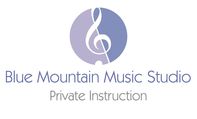|
1. Recitals provide a tangible goal to work towards. In having a set date and a pre-planned performance selection, your child learns how to manage their practice time and what it feels like to polish and perfect a piece.
2. Recitals provide an opportunity to feel successful. Learning the piano requires many, many hours of solo practice. Performing gives your child the recognition they deserve for their hard-work. 3. Recitals provide an opportunity for you to show your child that you value their involvement in music. Setting aside time in your busy life to attend a recital supports your children and their peers and shows your child that your family values music. 4. Recitals provide a chance for your children (and you!) to reflect upon where they’ve “come from” when watching beginning students. Progress at the piano can sometimes feel slow, but watching younger students perform reminds your children of the gains they have made and motivates them to continue to progress. 5. Recitals provide a chance for your children (and you!) to see “where they’ll go” when watching more advanced students. There are few things more motivating to a piano student than watching their peers perform. They get to hear pieces that they will enjoy playing in the future, see more advanced technique first-hand and experience the pride that comes from becoming proficient at the piano. 6. Recitals provide a chance for your extended family to be involved in your child’s piano education. Athletes get all the glory… everyone comes to watch soccer games but no one really heads over to watch a piano practice session! Involving grandparents and aunties and uncles in the recital audience gives your child an opportunity to share their hard work with the ones they love. 7. Recitals provide a chance for your child to experience nervousness… and to realize that those feelings are okay. We like to protect our children from feeling uncomfortable, but in “real life” these feelings are part-and-parcel of being human. Early experiences with successfully conquering nerves gives children confidence. 8. Recitals give you the opportunity to provide genuine and heart-felt praise. Bring on the photos and videos and big hugs and flushed-face smiles. Clap enthusiastically. Let your child know just how much you recognize their efforts and watch their commitment to piano lessons soar. 9. Recitals provide a chance for your child to practice public speaking and to gain confidence in front of a group; two skills that will serve your child well in many other areas of his or her life. Speaking and performing in a safe environment means that your child gains important experience in front of a crowd. The earlier these experiences happen, the easier it becomes for your child as they enter adolescence and adulthood. 10. Recitals provide an opportunity for your child to get to know his or her peers who are also taking lessons. Making these connections helps to build community within a studio and helps your child to feel as though he or she belongs which results in increased interest in lessons. 11. Recitals give your children the chance to hear live music. Young children rarely attend a lot of live concerts… and piano recitals are a wonderful place for your child to hear a wide variety of music. Nothing can replace the “live music experience” and when your child is an active participant in the event it’s even more rewarding! 12. Recitals provide an opportunity for you to sit back and marvel at the pride-inducing sight of your own child making beautiful music! Piano practice is often done amongst a busy household with siblings, pets, vacuums, dishwashers and doorbells. It’s rare that you have the opportunity to focus only on your child and the music they are making. These moments matter. www.teachpianotoday.com |
Archives
May 2018
CategoriesAuthorVarious sources |
